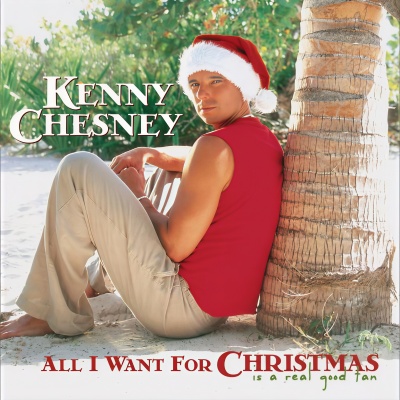
All I Want for Christmas Is a Real Good Tan
Genres: Holiday, Country Released: 07 October 2003 2003 BMG Music All I Want For Christmas Is A Real Good Tan is the eighth album of country music singer Kenny Chesney. It was released on October 7, 2003. His first album of Christmas music, it was certified gold in the U.S. In addition to original tracks and renditions of traditional Christmas music, the album features three covers. "Christmas in Dixie" was originally recorded by Alabama and features Alabama's lead singer, Randy Owen, as a duet partner. "Thank God for Kids" was previously recorded by The Oak Ridge Boys (and originally by Eddy Raven), while "Pretty Paper" was originally recorded by Willie Nelson. Chesney's rendition of "Silent Night" features his mother and her twin sister, who are credited as the Grigsby Twins.
